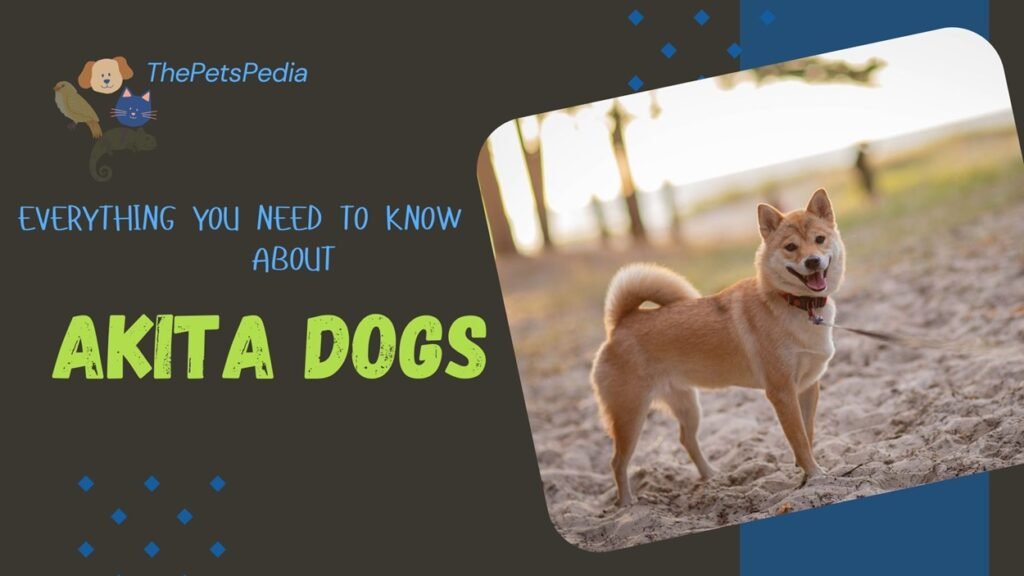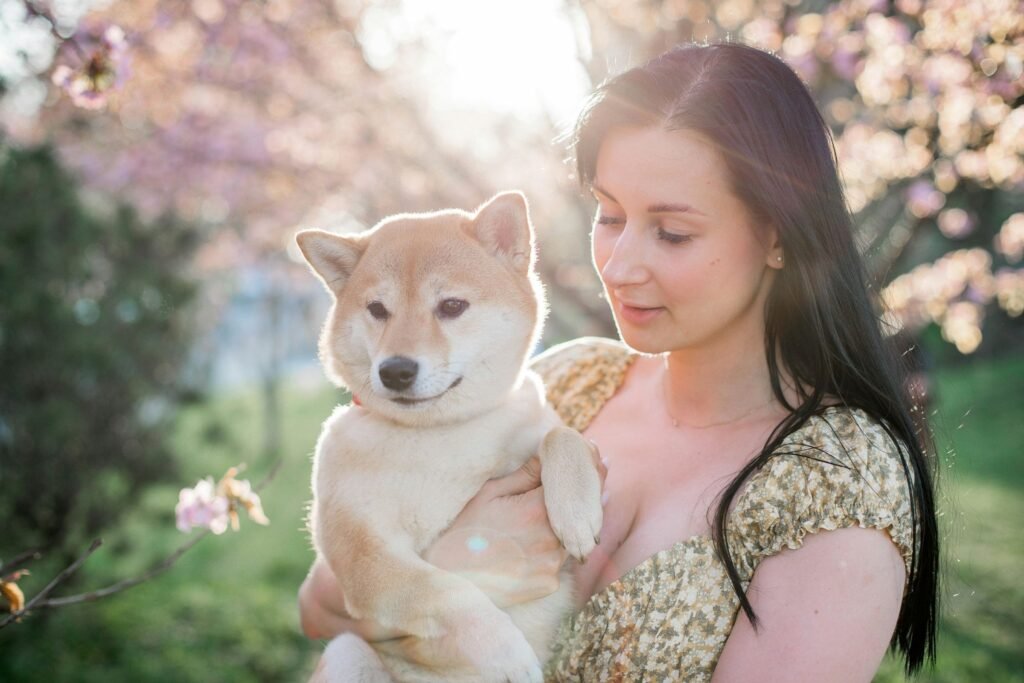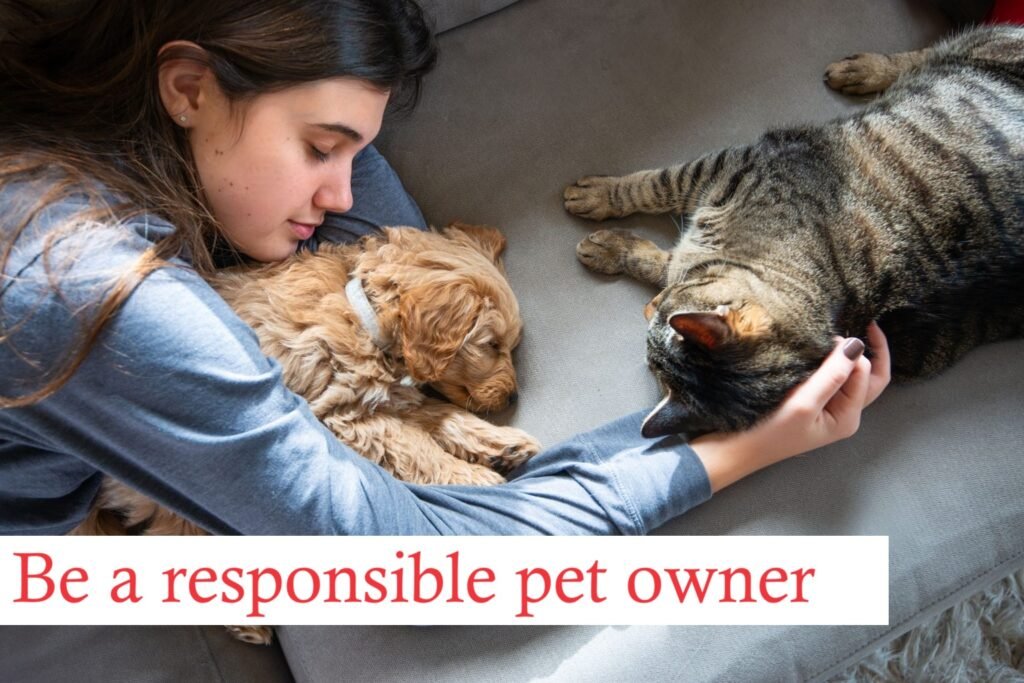Akita dog is a powerful, loyal, and dignified breed that has earned its place as one of the most beloved and respected dog breeds worldwide. Known for its striking appearance and independent nature, the Akita has become a symbol of loyalty, bravery, and strength.
A Brief History of Akita Dog (Akita Inu)
The Akita breed has a rich history that dates back to ancient Japan, where it was originally bred to hunt large game like bears, boars, and deer. These dogs were named after the Akita Prefecture in northern Japan, where the breed was developed. Historically, Akitas were symbols of strength, courage, and loyalty, often kept by the Japanese nobility.
The Akita in Japanese Culture
In Japanese folklore, the Akita dog breed is regarded as a symbol of good health and good fortune. The breed’s role in protecting its family and its hunting prowess made it an invaluable companion. One of the most famous Akitas is Hachiko, who is known for his unwavering loyalty. Hachiko waited for his owner at a train station for nearly 10 years after his owner’s death, becoming a national symbol of loyalty.
Physical Characteristics
Size and Weight
The Akita is a large and imposing dog with a well-muscled body. Males typically weigh between 110-130 pounds (50-59 kg), while females weigh slightly less, around 100-110 pounds (45-50 kg). Their height typically ranges from 24 to 28 inches (61-71 cm) at the shoulder, making them a powerful and majestic presence.
Think To know!
Due to their large size, they require a spacious living environment. If you are considering adopting one, make sure you have enough room for them to move comfortably.
Coat and Color
This dog is renowned for its thick, double-layered coat, designed to protect it from the harsh weather conditions of its native Japan. The outer coat is straight and harsh, while the undercoat is soft and dense. The Akita’s coat comes in a variety of colors, including:
| Color | Description |
| White | Pure white Akitas are common and strikingly beautiful. |
| Brindle | A combination of black and fawn stripes creates a unique look. |
| Red | A vibrant, rich red coat is one of the most popular color variations. |
| Fawn | A light tan color with a soft, gentle look. |
| Black | Less common, but solid black Akitas are also stunning. |
Eyes and Expression
They have dark, almond-shaped eyes that give them a dignified and determined expression. Their eyes are often described as reflective of the breed’s noble and independent nature.
Ears and Tail
The Akita’s ears are erect, triangular, and slightly rounded at the tips, adding to the breed’s alert and confident demeanor. The tail is thick and carried over the back, often curled in a distinctive “sickle” shape.
Personality and Behavior
They are known for their independent and reserved nature, but they are also incredibly loyal and protective of their families. While they may appear aloof with strangers, their devotion to their owners is unparalleled.
“Akitas are renowned for their fierce loyalty and devotion to their family. They form strong bonds with their loved ones and possess a natural instinct to protect them. This makes them excellent watchdogs, always alert and ready to defend their territory.”— Laughter Lane ,6 July, 2024| A Facebook Page
Loyal and Protective
The Akita’s loyalty to its family is legendary. It is known to form strong bonds with its owners and will go to great lengths to protect them. Because of this, Akitas are often used as guard dogs and excel in protective roles.
“The Akita’s loyalty is unmatched; it’s not just a dog, it’s a steadfast protector.” — ThePetsPedia.com
Independent and Intelligent
Akitas are highly intelligent but also have an independent streak, which can sometimes make training a challenge. They are not as eager to please as some other breeds, but with patience and consistency, they can excel in obedience training.
Calm and Reserved
While they are not generally aggressive, so can be reserved, especially around strangers. They are naturally aloof and may not be as playful or social as other breeds. However, they do enjoy spending time with their family and can be very affectionate.
Socialization Needs
Proper socialization is essential for the Akita breed. Early exposure to a variety of people, environments, and other animals will help ensure that your pet Akita grows up to be a well-rounded dog. Without proper socialization, Akitas may become territorial or exhibit aggressive behaviors toward unfamiliar people or animals.
Caring for Your Akita
Grooming Needs
Due to their thick double coat, Akitas require regular grooming. They shed heavily twice a year during seasonal changes (spring and fall), but regular brushing can help manage shedding and keep their coat healthy. Bathing should be done when necessary, and special attention should be paid to their ears to avoid infection.
Nutrition and Diet
Feeding your pet Akita a balanced and high-quality diet is essential for maintaining its health and vitality. Due to their size and energy levels, Akitas may require more calories than smaller breeds. It’s important to choose a dog food that is rich in protein and appropriate for their life stage.
| Feeding Tips | Details |
| High-Quality Food | Choose a brand with high-quality ingredients and appropriate for large breeds. |
| Caloric Needs | Monitor your Akita’s weight and adjust portions as needed to avoid obesity. |
| Fresh Water | Always provide access to fresh water to ensure hydration. |
Exercise Requirements
Akitas are active dogs that enjoy moderate exercise. Daily walks and outdoor playtime are essential to keep them physically fit and mentally stimulated. However, because of their independent nature, Akitas do not require as much exercise as some other active breeds.
Health Considerations
While they are generally healthy dogs, they can be prone to certain genetic health issues. Regular veterinary check-ups are important for early detection and management of health problems.
| Health Issue | Description |
| Hip Dysplasia | A hereditary condition that affects the hip joints and can lead to arthritis. |
| Hypothyroidism | A condition where the thyroid gland doesn’t produce enough hormones. |
| Autoimmune Diseases | Akita dogs can be prone to autoimmune disorders, which can affect their immune system. |
| Progressive Retinal Atrophy (PRA) | A genetic condition that can lead to blindness in Akitas. |
Lifespan and Quality of Life
The average lifespan of an Akita dog is around 10 to 12 years. With proper care, including a balanced diet, regular exercise, and routine veterinary visits, your Akita dog breed can live a long and healthy life. Providing them with mental and physical stimulation will also contribute to their well-being.
Socialization and Training
Early Socialization
Socializing your Akita dog from a young age is critical to prevent behavioral issues. Expose them to different people, animals, and environments so they can grow up to be confident and well-mannered.
Basic Training
Akita dogs are intelligent but independent, which means they may not always respond to training as quickly as other breeds. Use positive reinforcement methods, such as treats and praise, to encourage good behavior. Consistent training is essential for establishing a strong bond with your Akita.
Advanced Training
Once your Akita has mastered basic commands, you can proceed with more advanced training, such as obedience courses or agility training. These activities will provide mental stimulation and help keep your pet Akita dog engaged and satisfied.
Living Standards for Akitas
Home Environment
Akitas do best in a spacious home with a secure yard where they can run and play. Due to their protective nature, it’s important to provide a safe and secure environment for them. They are not ideal for apartment living due to their size and exercise needs.
Warmth and Comfort
They enjoy the colder climates due to their thick double coats. Ensure they have a cozy spot to rest, and avoid leaving them outdoors for long periods in hot or extreme weather conditions.
Safety and Security
Ensure that your Akita dog is kept in a well-fenced yard, as they are known to be escape artists. They also have a high prey drive, so be cautious around smaller animals.
Finding an Akita
Choosing a Reputable Breeder
When adopting an Akita dog, it is essential to find a reputable breeder who focuses on the health and well-being of their dogs. Ask about health clearances, observe the temperament of the puppies, and ensure the living conditions of the breeder are up to standard.
Adoption Options
Consider adopting an Akita dog as a pet from a rescue organization or animal shelter. Many Akitas need loving homes and can make wonderful pets with the right training and care.
Conclusion
The Akita is a noble, independent, and fiercely loyal breed that thrives in an environment where it feels safe, secure, and loved. Whether you’re drawn to its majestic appearance, its rich history, or its unwavering loyalty, an Akita dog can make a wonderful companion for those who are prepared to meet its unique needs. With proper training, socialization, and care, the pet Akita dog can be a devoted member of the family for many years to come.




